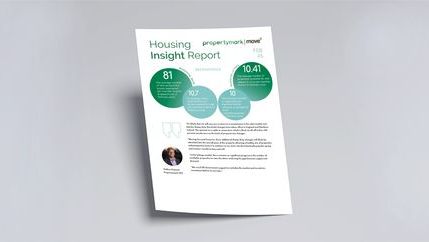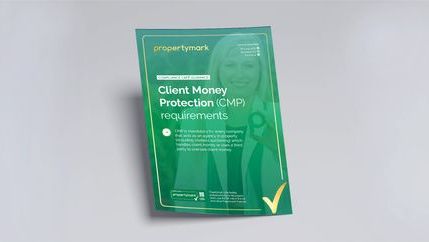Make material information your superpower
The time it takes to complete a property sale in the UK remains stubbornly high, with buyers and sellers facing delays that can cause deals to fall through and create stress. Propertymark’s Housing Insight Report demonstrates that 32% of member agents reported it takes an average of 17 weeks or more to progress from offer to acceptance to exchange.
Modernised planning committees will still need more planning officers
The UK Government has published proposals to reform planning committees in England as part of its broader planning reform agenda, setting out significant changes that could affect how planning decisions are made locally. Propertymark supports reform to improve the consistency and speed of decisions but warns that the current proposals may miss the mark, especially around delegation and local flexibility.
Four common causes of professional indemnity claims against letting and sales agents
Trust is placed in lettings and sales agents by individuals and businesses who seek expertise, knowledge and attention to detail. With that trust, however, comes risk – and that's why it's essential to consider Professional Indemnity (PI) Insurance. Gallagher, the industry-approved supplier of insurance for Propertymark, offers cover for agency businesses to help protect them from the legal costs involved should a client make a claim against them due to a mistake or incorrect advice.
Crime and Policing Bill offers new tools to address anti-social behaviour
Propertymark has submitted a response to the House of Commons Public Bill Committee's call for evidence on the Bill, focusing on key areas that affect the property sector, particularly anti-social behaviour (ASB) and the protection of vulnerable tenants from exploitation such as cuckooing and county lines activity. Our key message is clear: no matter how strong the tools , they will only work if landlords and property agents are informed and engaged in the implementation.
Trump tariffs and the UK auction market: adapting for the future
US trade tariffs are shifting global auction dynamics, and UK auctioneers are being drawn into the ripple effects of international policy. While these measures are largely designed to protect US industries from Chinese competition, theyâve also had knock-on effects on transatlantic trade, complicating the movement of goods and altering buyer behaviour in ways that UK auction businesses are starting to feel. So, how can UK auctioneers respond with confidence to a changing market?
Housing Insight Report: February 2025
It’s likely that we will now see a return to a normal pace in the sales market now that the Stamp Duty threshold changes have taken effect in England and Northern Ireland. This spurred on a spike in momentum which is likely to tail off in line with previous trends seen on the back of property tax changes.
FAQ: Digital Markets, Competition and Consumers Act 2024 (Commencement No. 2) Regulations 2025
The Digital Markets, Competition and Consumers Act (DMCC Act) was enacted on 24 May 2024 and provides regulation of competition in digital markets, amending the Competition Act 1998 and the Enterprise Act 2002 and encompassing the protection of consumer rights and other related rights.
Compliance Café: CMP requirements
CMP is mandatory for every company that acts as an agency in property, including chattels auctioning, which handles client money or uses a third party to oversee client money.
Fact Sheet: UK Sanctions Reporting Obligations for High Value Dealers
Under the Sanctions and Anti-Money Laundering Act 2018, the UK Government introduced a new regime of issuing financial sanctions following the UK’s departure from the European Union. Under the Act, businesses specified in the Act have to report to Office of Financial Sanctions Implementation (OFSI) if they suspect they are engaging with a client who is under financial sanctions.
Santander increases mortgage affordability — what this means for the market
The lender has reduced its stress testing rates and adjusted how they calculate income, enabling some customers to borrow up to £35,000 more than before. This follows calls from the Financial Conduct Authority (FCA) for lenders to review their affordability tests and ensure they are not too restrictive.
Heat in Buildings Bill to return with more realistic aims
Extensive revisions have been announced to the proposed Bill, which is designed to transition Scotland's buildings to cleaner heating systems and improve energy efficiency. Following consultations, including substantial input from Propertymark, the Scottish Government is now committed to developing a more balanced approach that aligns environmental objectives with economic realities.
The CMA takes up the reins of consumer enforcement on 6 April, but what does it mean for property agents?
The Digital Markets, Competition and Consumers Act (DMCC), which passed into law on 24 May 2024, contains provisions to prohibit unfair commercial practices, replacing and updating the Consumer Protection from Unfair Trading Regulations 2008 (the 2008 regulations). The legislation hands direct enforcement powers to the Competition and Markets Authority (CMA), giving them the authority to act on breaches of consumer protection rules, including requirements for providing material information.
Propertymark launches unified logo to build on momentum in consumer awareness
The new logo will be exclusively available to those who take up a new Company Advantage package, signalling to prospective clients that a business has successfully achieved accreditation. In research independently conducted by YouGov, consumers overwhelmingly chose the wording that would make them want to engage and instruct.
UK Government must focus on affordability to tackle fuel poverty
Propertymark has called for a major shift in how fuel poverty is defined and addressed, with high energy prices and many households struggling to afford heating and electricity. In our response to the Fuel Poverty Strategy consultation from the Department for Energy Security and Net Zero (DESNZ), we advocate the move away from using Energy Performance Certificate (EPC) ratings as a key measure.
Propertymark calls for greater focus on accessible homes
The UK Government has responded to a report on the experiences of disabled people in the housing sector, which was published by the former Levelling Up, Housing and Communities Committee in 2024. Propertymark provided evidence to the inquiry and has written to current housing minister Rushanara Ali, MP, renewing our calls for a more robust and inclusive approach within the UK’s wider housebuilding agenda.
Warning over rent spikes in the vacuum between Cost of Living and Housing Bill
The Scottish Government is rolling the Housing (Scotland) Bill through the Scottish Parliament which will introduce new permanent rent control and adjudication regulations. However, between 31 March 2025 and the enactment of the Bill, there will be a period when rent assessments revert to pre-Cost of Living Act terms.

















